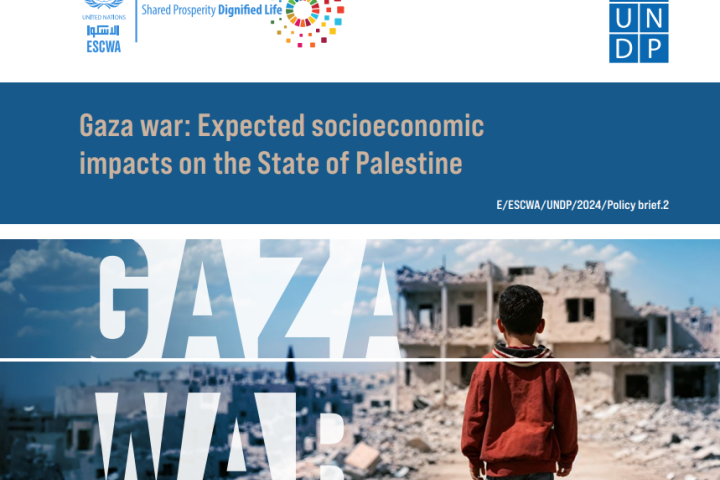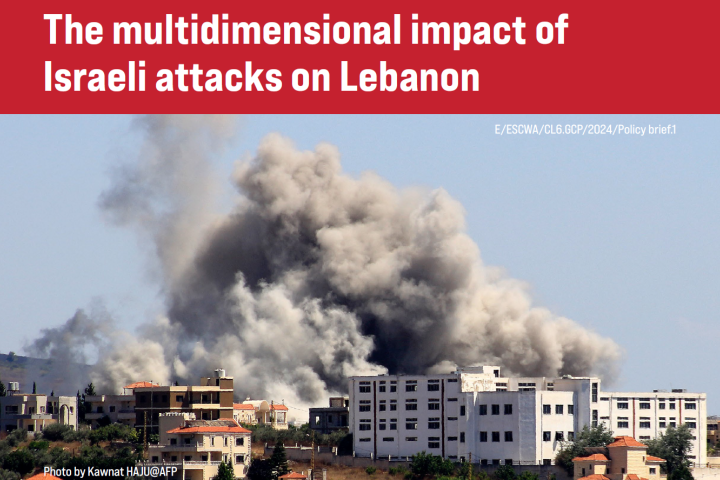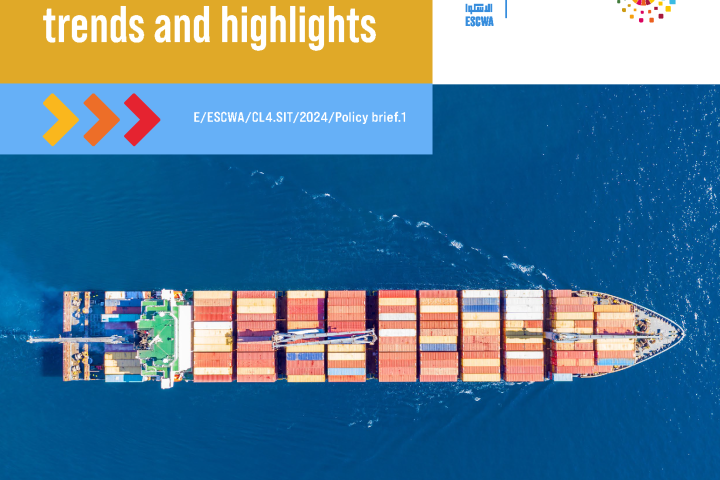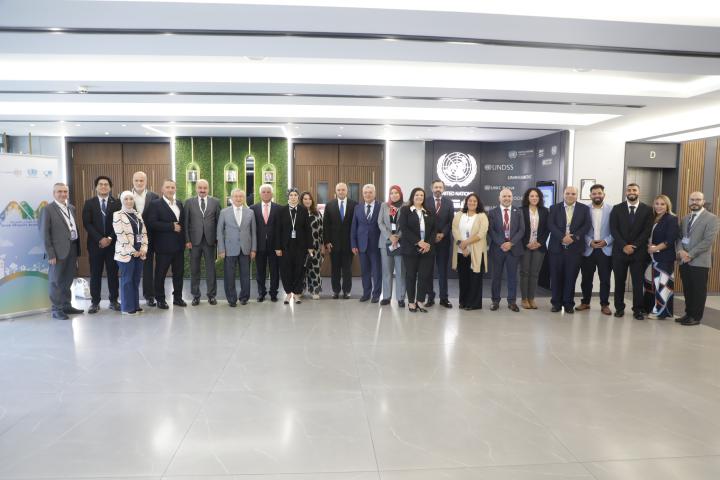A crowd of Arab and foreign political and diplomatic figures filled Rooms S-276 and S-277 of the United Nations Headquarters in New York yesterday to participate in the launching ceremony of the Arab Millennium Development Goals (MDGs) Report 2013, prepared by the world organization and the League of Arab States (LAS). The Report was launched by the Secretary-General of the League of Arab States (LAS), Mr. Nabil Al-Arabi; the Executive Secretary of ESCWA and Chairperson of the UN Regional Coordination Mechanism (RCM) for the Arab States, Ms. Rima Khalaf; as well as by the Director of the UNDP Regional Bureau for Arab States and Chairperson of the UN Regional Development Group for the Arab States, Ms. Sima Bahous. Bahous In her statement, Ms. Bahous said:” Of note is the report’s key message that governance and development can no longer be considered as separate or distinct tracts. Rather the way forward for the Arab region is to make balanced progress not only on governance but also in the economic, social and environmental dimensions of sustainable development.” She added: “It also resonates with the views of people in the Arab region who have participated in the online “My World Survey” or participated in the national and regional post-2015 consultations convened by United Nations Country Teams and the United Nations Development Group across the Arab region. These exercises have made clear that the world people want across the Arab region is one where there is more inclusive and higher quality social and economic opportunity, but also one in which governments are transparent, effective and responsive to their needs in the broadest sense.” Bahous also noted that “countries which have embarked upon transition are struggling to find their compass and are experiencing new strains and tensions. Amid the uncertainty social and economic indicators are rolling back and the time we most need them to go forward. Unrest in Syria has taken a most tragic turn, with the hardening of a full-on conflict which has already taken the lives of 100,000 people and displaced millions from their homes. The protracted nature of this crisis is now pushing back development in Syria and neighboring countries and continues to threaten regional stability in the broadest of senses.” Khalaf For her part, Ms. Khalaf said: “The Report gives an account of the significant achievements made by a number of Arab countries with respect to literacy and primary education enrolment rates, as well as the significant progress made in promoting gender equality in education at all levels. There is no doubt that the large investments made in education over the past decades have paved the way for this progress which augurs well for achieving the goals of universal primary education and gender equality in this area. The Report also shows that the Region has been able to reduce child mortality rates and improve maternal health, an achievement that allows for realizing many goals related to the health and well-being of society. However, the gains in education and health did not include all countries of the Region, some of which witnessed stagnation or even a reversal in these indicators, especially those that have recently suffered from conflicts and instability, like Iraq, Sudan and Syria, let alone Palestine, which remains a unique example in our Region and the world. The Israeli occupation, through its arbitrary procedures, continues to undermine the capacities of the Palestinian people, and to destroy all hope for them to develop and thrive, since they are deprived of the basic right to an independent state on their land and to self-determination as recognized by international law for all the peoples of the world.” She also noted that “in the Region as a whole, the achievements made are threatened by worrying indicators, which may undermine what has been achieved. The figures indicate that unemployment rates in 2013 are higher than they were in 1990. One quarter of Arab youth and one-fifth of Arab women today are deprived of decent work. The figures also indicate unprecedented rates of malnutrition in the region now affecting 50 million people, compared to 30 million in 1990. The water crisis has worsened in some Arab countries, which now suffer from an acute shortage of drinking water. Indicators of women's participation in politics remain low in most Arab countries, which only reflect the inability to build on the gains achieved by women in education and health.” Ms. Khalaf added that when “comparing the Arab region to other developing regions of the world, we find blessings worthy of mention. It is the Region of the world affected the least by extreme poverty. But when we compare the level of poverty in the Region today to what it was a quarter of a century ago, we find little improvement. Poverty rates, which have decreased in many developing regions of the world, remain at the same level in the Arab region since 1990. This is despite the increase in per capita income during that period. This indicates unequal distribution of developmental gains, which may undermine political and social stability. And the evidence is more than clear in this regard.” She concluded by saying that “this may be our last chance before the end mark of 2015 to assess our progress in achieving the Millennium Development Goals, but it is certainly not our last opportunity to achieve our developmental goals. Development is a continuous and comprehensive process, which will not stop in 2015. It will continue within a new framework, which we hope will be directed towards achieving greater well-being for all humanity, making challenging ambitions a reality, and filling our lives with significant achievements.” Al Arabi The last statement was delivered by Mr. Nabil Al Arabi, who said that the present report bears a special importance, as it has formulated the Arab vision that laid the foundations of the Arab Economic and Social Development Summit in Riyadh held at the beginning of the year for post-2015 development, by formulating some important proposals, to be implemented in cooperation with specialized UN agencies. He added that it must be mentioned again that the continuing Israeli occupation of Palestinian and Arab territories, along with its socio-economic and political repercussions, hinders comprehensive development efforts and endangers the achievements and gains of the countries in the region. He therefore reiterated the necessity of ending the Israeli occupation and establishing a just and comprehensive peace in the region so Arab countries could achieve full development and answer their peoples’ aspirations to freedom, dignity, and social justice. He noted that the destruction and violence in Syria has had a toll of 110 thousand deaths and the displacement of more than 3 million Syrians to neighboring countries, and the ensuing efforts of relief, providing shelter and daily subsistence to these large numbers of displaced and refugees, have also taken a heavy toll on countries neighboring Syria, which had a direct great impact on their social, economic and political conditions. The situation is getting worse by the day, Mr. Al Arabi added, and LAS is still continuing its efforts on all regional and international levels to achieve security, peace, and social harmony to the Syrian people, who is still suffering badly, and this is an unprecedented humanitarian situation that requires increased common efforts by all concerned stakeholders. Mr. Al Arabi concluded by saying that while he affirms the importance of persevering to find a solution to this crisis and avert its socio-economic and development repercussions, he calls on United Nations organizations Institutions of joint Arab actions to put together a vision for development in Syria for the post-conflict period, as swiftly as possible to overcome the crisis’ effects and ensure the security and safety of its people while implementing practical steps in order to make up catch up and achieve a comprehensive development. The Arab MDGs Report is a response to a request by the UN General Assembly for a periodic assessment of progress towards MDGs in the Arab region. It was jointly prepared by LAS, the UN organizations members of RCM and the Regional UN Development Group for the Arab States, and coordinated by ESCWA. The members of the thematic working group on MDGs within RCM are: the Food and Agriculture Organization of the United Nations (FAO); the International Labour Organization (ILO); the International Telecommunication Union (ITU); the Joint United Nations Programme on HIV/AIDS; the United Nations Children’s Fund (UNICEF); the United Nations Development Programme (UNDP); the United Nations Educational, Scientific and Cultural Organization (UNESCO); the United Nations Entity for Gender Equality and the Empowerment of Women (UN Women); the United Nations Environment Programme (UNEP); the United Nations Population Fund (UNFPA); and the World Health Organization (WHO).
- الرئيسية
- 2013 Arab MDGs Report Launched From New York
الأمانة التنفيذية
اللجنة الوزارية
مجموعاتنا المتخصصة
نتعاون
الموارد
موارد رئيسية
تحديث
للاتصال



